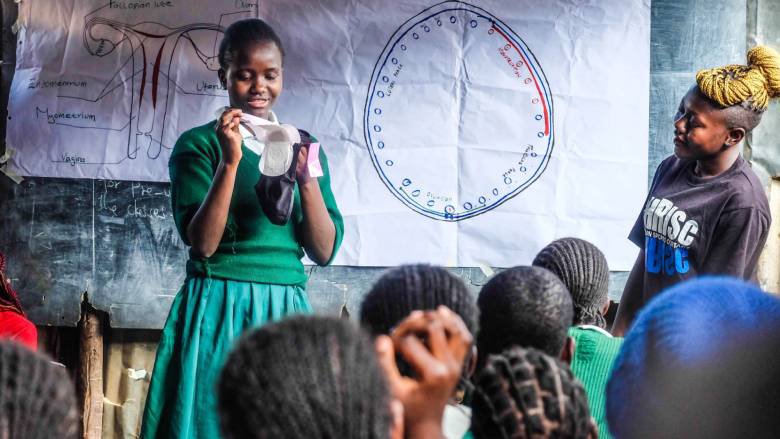Catalyst Europe - Period Poverty Research Project: Addressing Menstrual Management Challenges and School Absenteeism in Ghana
DAI-Africa is partnering with international researchers on the Catalyst Europe - Period Poverty Project to study the impact of menstrual challenges on school absenteeism among girls in poverty-affected areas of Ghana.
 Image Reference: https://www.worldbank.org/en/topic/water/brief/menstrual-health-and-hygiene
Image Reference: https://www.worldbank.org/en/topic/water/brief/menstrual-health-and-hygieneDAI-Africa is partnering a team of researchers from Hungary, Luxembourg, Germany, and the United States on the Catalyst Europe - Period Poverty Project. The project seeks to understand the impact of menstrual management challenges on recurring school absenteeism among adolescent girls in poverty-affected regions of Ghana. An estimated 27% of girls miss school regularly due to period-related issues, highlighting the critical need to address the lack of access to affordable menstrual products and private hygiene facilities. Since menstruation is a recurring monthly event, this absenteeism is not just a one-time occurrence but a continuous disruption that significantly hampers educational performance and limits future economic opportunities for girls.
The project aims to investigate the cultural, economic, and infrastructural factors that contribute to school absenteeism related to menstrual management. Specifically, the project explores how cultural attitudes toward menstruation, limited access to affordable menstrual management products (MMPs), and inadequate sanitation facilities create a cycle of absenteeism. By understanding how these factors intersect, we hope to uncover the root causes of this issue, which continues to affect girls in poverty-stricken regions of Ghana.
The ultimate goal is to collect and analyze data to provide actionable insights that can help develop solutions aimed at reducing menstrual-related absenteeism. These insights will guide the creation of affordable, culturally acceptable, and sustainable MMPs that are safe for extended use and help reduce the reliance on school sanitation facilities.
Central Question
The central question of the project revolves around the feasibility of building an affordable sanitary pad specifically designed for regions with limited access to water and economic resources. The aim is to reduce the effects of period poverty-related school absenteeism. Achieving this goal requires a sustainable manufacturing and distribution system to ensure the availability of affordable sanitary pads to the schoolgirls who need them most.
